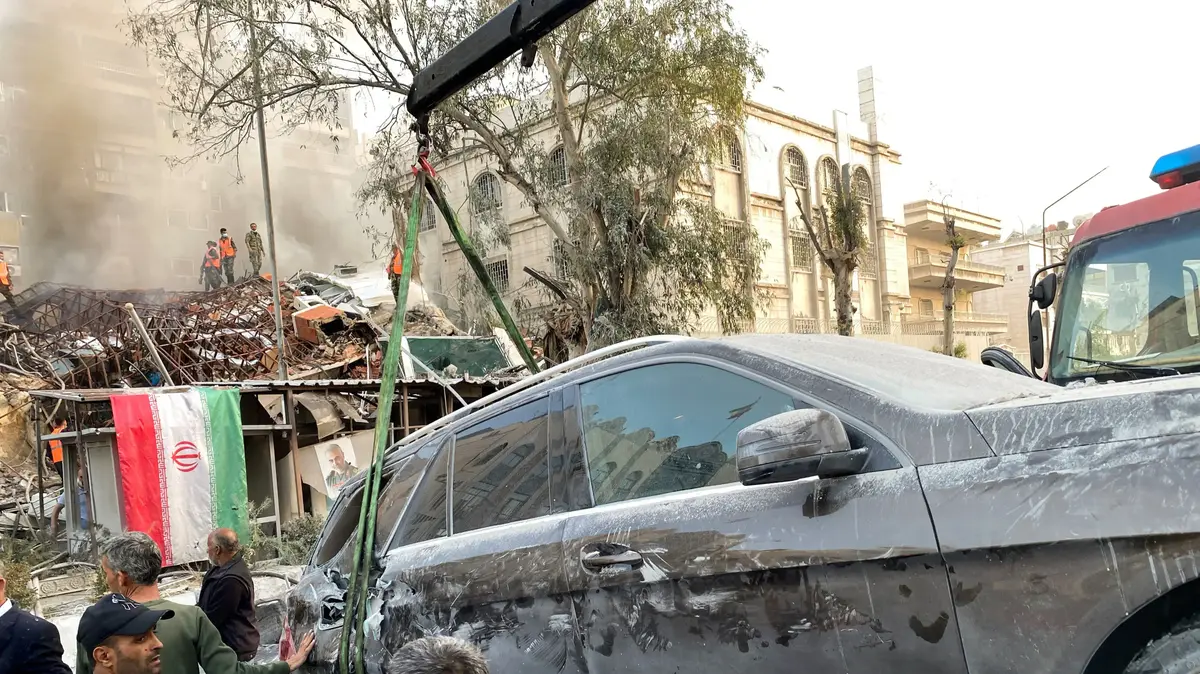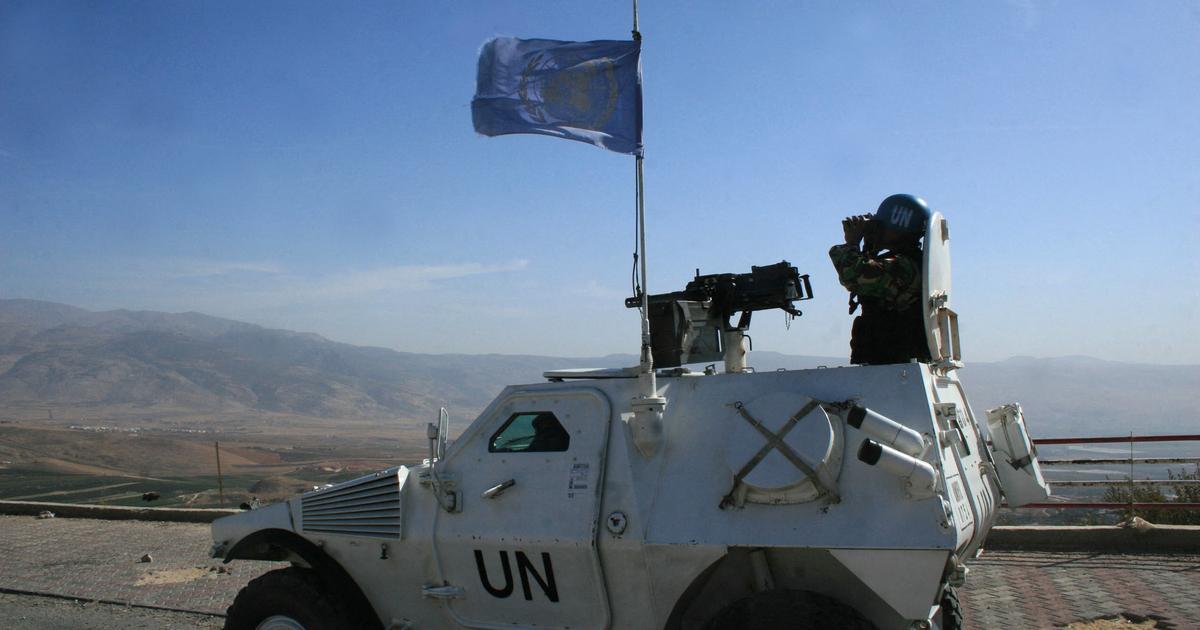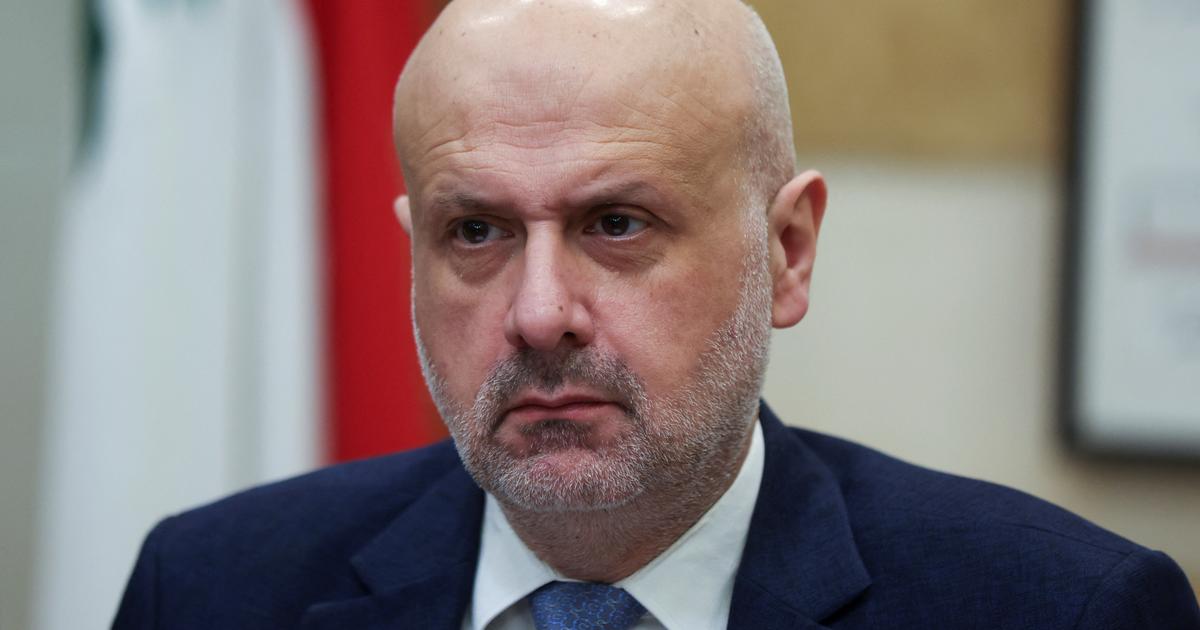One year after the catastrophe that devastated the port of Beirut, Lebanon remains in a political and economic coma, trapped in the quicksand of a failed state. The national collapse is even more serious than that of August 4, 2020, when the explosion of tons of ammonium nitrate, used for fertilizers and explosives, caused 218 deaths, injured some 7,000 people and displaced 300,000 Beirutis from their homes. , with damages estimated at up to 5,000 million euros. “The evidence collected clearly shows that it was due to the actions and omissions of senior Lebanese officials who did not report the danger posed by ammonium nitrate, knowing that it was stored in unsafe conditions, and that they failed to protect citizens ”Recapitulates Lama Fakih,Human Rights Watch's director of crisis and conflict, in a report released Tuesday by teleconference from Beirut.
More information
Lebanon tries to emerge from its deepest crisis with a businessman at the head of the Government
Spain aspires for the third time to command the 10,250 'blue helmets' of Lebanon
It was one of the largest non-nuclear explosions recorded in contemporary times. And the patronage regime of ethnic and religious parties that emerged three decades ago, after the bloody civil war that lashed the Mediterranean Levant country for 15 years, was also carried away. Four prime ministers have come to power in the last year without any of them having managed to form a stable government so far. Lebanon remains paralyzed, while the international community refuses to revive its bankrupt economy if drastic anti-corruption reforms are not implemented. In the months leading up to the explosion, social protests against a ruling class that only seeks to perpetuate the status quo had already stirred the Lebanese streets on a scale unprecedented since the civil conflict.
But with the foreign currency accounts in the bank subjected to a corralito; no fuel at the gas stations, hardly any medicine or basic foodstuffs in pharmacies and supermarkets, and the Lebanese pound devalued by 90% against the dollar and inflation that has exceeded 200% over the last two years Lebanon is slipping towards to chaos. Half of its 4.5 million inhabitants and almost all the refugees - one million Syrians and hundreds of thousands of Palestinians - have fallen below the threshold of extreme poverty.
Since the second donor conference for Lebanon, organized in December last year, the 280 million euros committed by the international community in emergency assistance have been exceeded. French President Emmanuel Macron plans today to lead a third virtual conference "in support of the Lebanese population" - emphasizing that it is not addressed to the Government or the institutions - for which the UN has estimated the amount of more than 350 million euros. goal of urgent help needed.
France hopes that this new international conclave will serve to encourage Lebanon's leaders to form a government at once, a constant demand since the beginning of the crisis.
However, external pressures have not had any effect, despite growing threats of sanctions from the international community, increasingly frustrated with the Lebanese political blockade.
"It will be the occasion to reaffirm the need to quickly establish an Executive capable of applying the structural reforms expected by the population, which will allow offering in-depth aid that goes beyond the emergency," sources from the Elysee have advanced on the eve of the meeting. .
Join EL PAÍS now to follow all the news and read without limits
Subscribe here
Lebanese President Michel Aoun, as well as his American counterparts, Joe Biden, who plans to send a video message, and Egyptian, Abdelfatá al Sisi, will participate in the conference, among others.
The top officials of the UN and the International Monetary Fund (IMF) will also attend telematically, along with senior diplomatic representatives, including the Spanish Minister of Foreign Affairs, José Manuel Albares.
Sectarian disputes between confessional parties
The appointment of the Sunni Nayib Mikati, a billionaire who already served as prime minister in 2005 and from 2011 to 2014, has opened an escape route for a week for Lebanon to move away from the current misrule. All attempts to form an Executive have crashed in the last year into sectarian disputes between its 18 ethnic and religious communities, while the economy went bankrupt. Even the Army itself - one of the nation's few common pillars and the only effective counter-power to the well-equipped Hezbollah militias - has literally starved, along with most of the Lebanese, and has had to demand foreign aid to feed the nations. troops.
The businessman Mikati - considered one of the richest men in Lebanon, after selling his telecommunications company in 2005 for 4.65 billion euros - received the investiture vote of 72 of the 118 deputies of Parliament. They included Hezbollah's Shiites and Sunni supporters of former Prime Minister Said Hariri, who resigned last month to form a government after trying in vain since last October. Cross vetoes by Christians of Sunnis and by pro-Iranian Shiites of pro-Western forces continue to force a political blockade on a multicultural nation in the eye of the Middle East hurricane.
In Paris, no one hides the frustration at the little political progress in Lebanon since the Beirut port explosion. "The situation continues to deteriorate, the need for a government is increasingly urgent," underline sources from the French Presidency. Mikati is negotiating her training and "she has to get it," they insist. What Macron and other international officials want is "a government that does the job that everyone expects of it and for the moment this is not the case," they lament. France summarizes in three the tasks that the new prime minister will have to tackle urgently: "Structural reforms, seriously resume negotiations with the IMF and prepare for next year's elections."
The European Union shares the same concern.
“A ship in the middle of a storm needs a captain and a crew to function;
if not, it will sink ”, warned the head of EU diplomacy, Josep Borrell, last June in Beirut.
If a government with a technical profile with broad parliamentary support is not formed to apply urgent political and economic reforms in order to tackle public lack of control and corruption, Borrell pointed out then, there will be no international aid.
Human Rights Watch investigation
Human Rights Watch (HRW) on Tuesday called for an international investigation into the explosion that shook the Lebanese capital a year ago. In a report presented from Beirut on a teleconference, the New York-based NGO claims to have evidence that senior officials in the country were aware of the risks posed by the unsafe storage of tons of ammonium nitrate for almost six years in a warehouse in the port of Beirut with hardly any surveillance. HRW maintains that the President of Lebanon, Michel Aoun; the then prime minister, Hasan Diab, and those responsible for state security had been alerted to the danger several weeks before the catastrophe and did not act accordingly.
"The evidence is clear, but the political system allows them to evade their responsibilities," highlights the report investigating the explosion, which claimed more than 200 lives. "The scars of the devastation are still visible in the city and the victims and their families are still waiting for a response," says HRW Crisis and Conflict Director Lama Fakih. "In a context of prolonged corruption and misrule (...) numerous authorities are responsible, at the very least, for negligence in the supervision of potentially explosive material," says the investigation, which began in 2014 with the arrival of the cargo at the port.
President Aoun has admitted that he was aware of the presence of harmonium nitrate since July 21 last year, and that he asked one of his collaborators to follow up on the matter.
Prime Minister Diab received the same information on June 3, but took no action and referred it to Justice and Public Works.
The document came from the Higher Defense Council, in which both leaders participated, and which had evidence of the storage of tons of the chemical product since 2019. Judge Tarik Bitar, who is investigating the events, has called Diab and several former ministers to testify.
Aoun is willing to appear in court.
But HRW maintains that the investigation has bogged down in the face of the immunity of most of those named.
The explosion pulverized the port and affected half of the capital. More than 75,000 homes were damaged. The World Bank has confirmed that Lebanon is going through the worst economic crisis in its history and one of the most serious on a global scale since the 19th century. The catastrophe, added to the pandemic, has forced the GDP to collapse by 20.3% in 2020.

/cloudfront-eu-central-1.images.arcpublishing.com/prisa/S37EXGMHBNARJJDCRUXYWZH5K4.jpg)










/cloudfront-eu-central-1.images.arcpublishing.com/prisa/KMEYMJKESBAZBE4MRBAM4TGHIQ.jpg)


